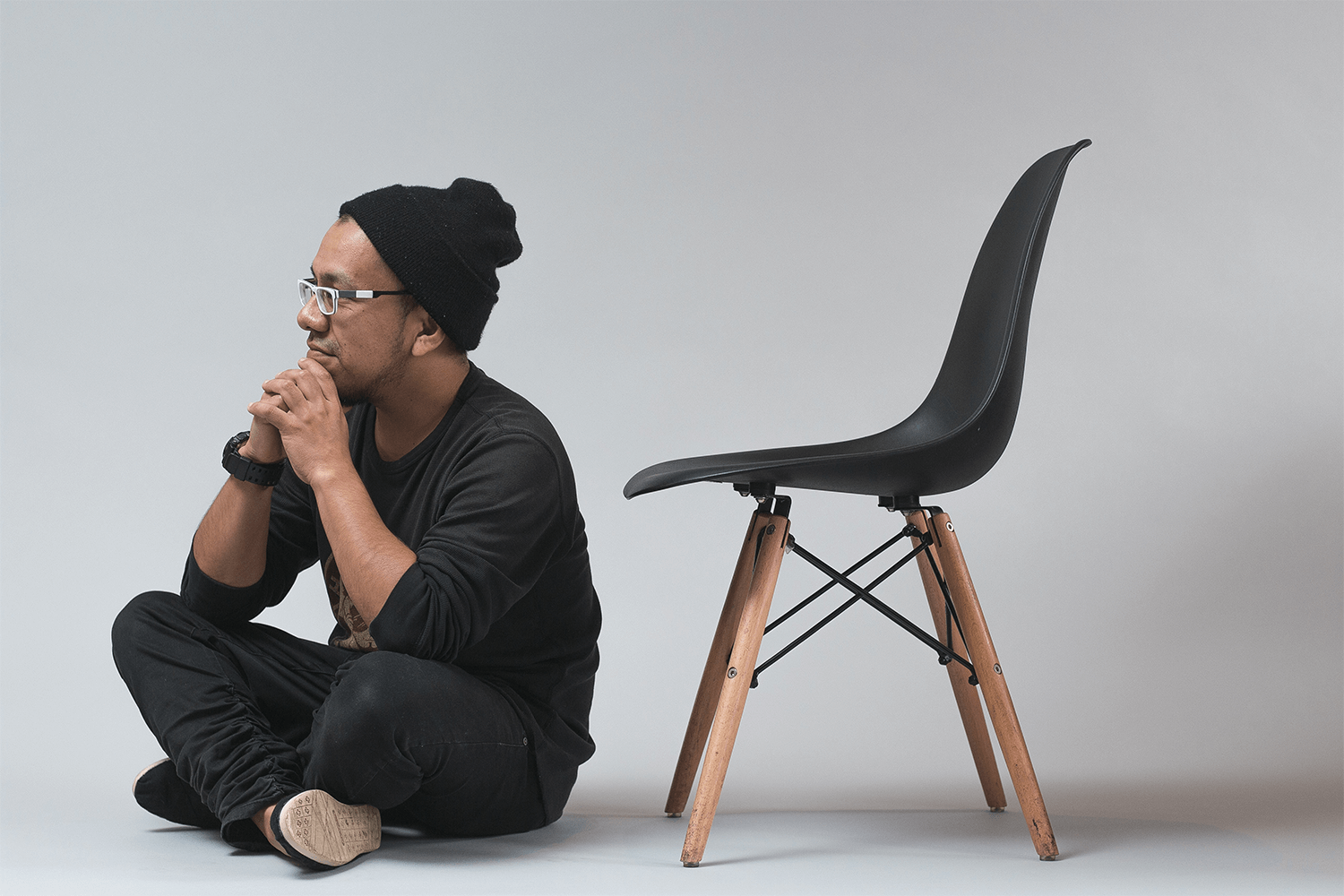Written by Ashley Kane,
Brightside Health
7 Minute Read

Medically reviewed by:
Erin O'Callaghan, PHD
Director of Therapy
10 Minute Read

Restlessness is a feeling we’re all familiar with. Certain times in our lives can make us more restless than usual. Sometimes those feelings turn into something more, like anger and irritability.
Those experiencing restlessness often describe it as feeling antsy or on edge. Restlessness can be a symptom of anxiety and depression, so it’s important to understand what restlessness is as a symptom, and when it can be an underlying symptom of anxiety and depression so you can tell when you may benefit from seeking professional help.
Want to speak 1:1 with an expert about your anxiety & depression?
What is restlessness?
People who experience restlessness often have difficulty sitting still while working or relaxing. It can present physically, or it can present mentally, resulting in difficulty falling asleep or getting things done throughout the day. You might also be experiencing tremors, palpitations, impulsivity, and distractibility.
Restlessness is a term used to describe a variety of symptoms that could have an underlying medical condition as a cause. Medical conditions like sleep apnea or other sleep disorders require medical advice, but so do some of the psychological or psychiatric causes of restlessness. These may include anxiety, insomnia, hyperactivity, and more.
Why do people feel restlessness?
There are a number of reasons why you might be feeling restlessness, including hormonal, medicinal, or neurologic causes.
Medications taken for asthma or ADHD have a stimulant side effect which can contribute to feelings of restlessness.
Your hormones can also be the culprit of your restlessness. Endocrine imbalances sometimes bring on feelings of unrest with both hyperthyroidism and hypoparathyroidism. This is often accompanied by heart palpitations and weight loss.
There could also be psychiatric causes of restlessness if you struggle with generalized anxiety disorder, ADHD, or bipolar disorder. This type of restlessness is usually characterized by pacing, arm movements, and the urge to move around constantly. Restless leg syndrome (RLS) also causes restlessness which can be caused by pregnancy, low iron, and peripheral neuropathy.
If your diet includes a lot of caffeine or sugar, that may also lead you to feel restless.
Restlessness can trigger poor coping mechanisms
Feelings of restlessness are something many people avoid and use all the resources they have to distract their mind and body from dealing with their underlying feelings. This happens in a number of different ways—some choose to overeat, while others turn to drugs or alcohol. These behaviors can be habit-forming and lead to poor health or addiction.
Social media and television are other common ways people distract their minds from feeling restless. In the grand scheme of things, social media can make restlessness worse. It can increase feelings of depression and anxiety and can even lead to suicidal behavior. Ignoring the problem of restlessness will never help it truly go away.
Healthy ways to help deal with restlessness
Here are some helpful tips for overcoming restlessness that you can start right now:
- Talk to someone. Expressing your feelings to someone will help you feel better and you’ll feel less alone. You can open up to anyone that you trust, including family and friends, or decide to get professional help. A professional can help determine if your feelings of restlessness are due to an underlying mental health condition.
- Look after your well-being. Maintaining a healthy diet and sleep schedule is essential for your mental and physical health. Make sure that you’re eating enough protein and drinking enough water every day.
Getting at least eight hours of sleep each night will allow your body to rest and recover from the day. We call this practicing good sleep hygiene.
- Take some time for yourself. Even if you only have 10-15 minutes to spare, carve out some time to just breathe. Find a quiet place and try to meditate while doing some relaxation techniques and breathing exercises.
- Exercise. A lack of physical activity only makes restlessness worse. Going for a walk or a jog during the day will increase your endorphins and get a lot of your energy out. It will also help improve your physical health by decreasing your risk of diabetes and high blood pressure.
- Find a hobby or volunteer. Doing things that you love is one of the keys to happiness. Look for an activity that brings you joy and focus on that whenever you can. You can even find an outreach program to help others as giving of oneself can be therapeutic.
Try to find something that involves moving around so that your body and mind can benefit from it.
Getting professional help with restlessness
Sometimes you need some help to overcome restlessness at night. It can be difficult to understand if your restlessness is a symptom of an underlying mental health condition. Seeking help from a licensed provider can help you understand what’s going on and recommend medication, therapy, or both to treat the underlying cause.
Brightside Health is an online mental healthcare provider that caters to your needs, whether through medication, therapy, or both. We provide a personalized treatment plan with medication delivered to your door if you need it, or if you prefer just the therapy route, you can rest assured knowing that all of our therapists hold master’s degrees or higher and are experienced in depression and anxiety care.
Once you take our free assessment online, we’ll be able to connect you to a licensed Brightside provider who can help pinpoint the underlying reason for your restlessness and find ways to properly treat it.
Our treatment is designed to help you feel better in just 12 weeks.
With Brightside, you have access to virtual video visits and unlimited messaging, as well as measurement-based care to track your progress.
What can therapy do for restlessness?
The first thing to know about therapy is that there are different types. One of the most effective types of therapy is cognitive behavioral therapy, or CBT. This is a skill-building, evidence-based approach that aims to change certain ways of thinking and behaving to help you feel better.
CBT can be used to help you feel better and less restless in a set amount of time. This form of therapy can help you to understand your challenges better and get you back to feeling like yourself again. It’s important to remember that going to therapy doesn’t have to be a lifelong commitment.
To help you get started with therapy, there are a couple of things you should do first. Number one is to set your expectations. Just as distress was likely something that unfolded over time, feeling better tends to be a gradual process as well.
The second thing to do is identify why you want to go to therapy. Understanding this ahead of time will help you reach your goals sooner rather than later.
Lastly, remember to be honest in your therapy sessions. Everything you talk about with your therapist is confidential unless you’re in danger of harming yourself or others. It doesn’t do any good to lie about how you’re feeling or what’s been happening in your life.
The bottom line
Restlessness doesn’t have to be a lifelong feeling for you. The first step to feeling better and improving your quality of life is asking for help and advocating for yourself. If you feel like your restlessness is getting in the way of your daily routine and it’s difficult to focus throughout the day, it may be time to look into therapy, medication, or a combination of the two.
Ready for some help? Get started with our free online assessment right here.
Sources:
Feeling restless – Healthdirect
4 Easy Ways To Overcome Restlessness – Thrive Global
Ask a Therapist: How Can I Stop Feeling Restless and Unproductive? – Very Well Mind














